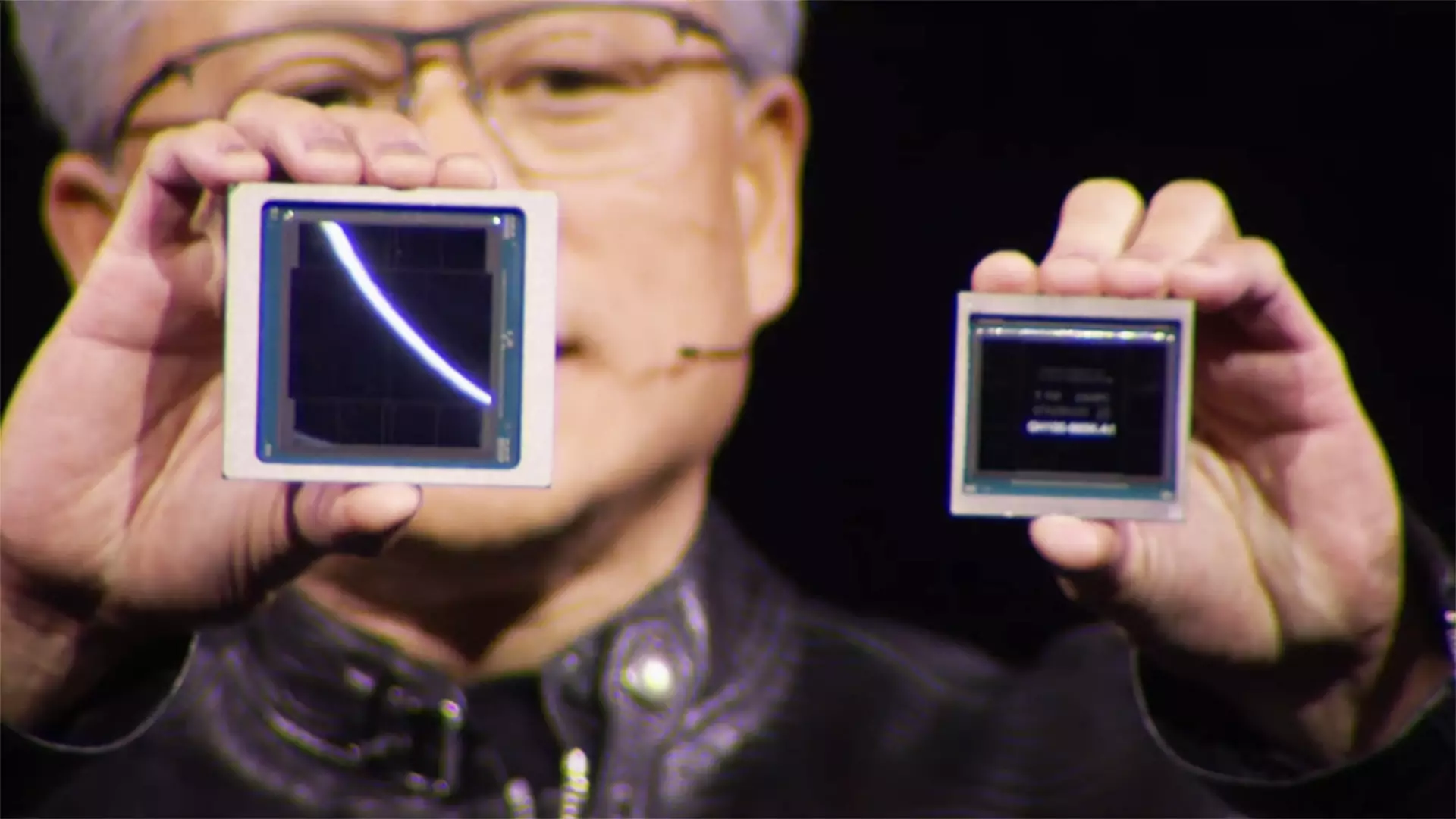In the ever-evolving landscape of technology, Nvidia finds itself at a pivotal crossroads, confronting the ramifications of the U.S.’s restrictions on semiconductor exports to China. The stakes have escalated beyond corporate competitiveness, impacting the broader tapestry of global innovation and talent mobility. Nvidia’s vocal criticism of these restrictions isn’t merely a strategic ploy; it reveals the intricate interplay between policy and technological advancement. As the tech giant challenges the narrative surrounding these regulations, one can’t help but recognize the complex dynamics that shape its criticisms and motivations.
The Unforeseen Consequences
Bill Dally, Nvidia’s chief scientist, has recently illuminated a pressing issue: the emigration of talent from Nvidia to Huawei due to these restrictions. It’s a clear indication that the export controls, designed to stifle China’s tech growth, may inadvertently be fueling a more robust AI research environment in the region. As Dally reportedly noted, the proportion of AI researchers from China has surged, illustrating a strategic pivot compelled by insufficient access to advanced Nvidia products. This development underscores a crucial point—restrictions intended to protect U.S. technological primacy can paradoxically catalyze innovation in competitor nations, effectively serving as an accelerating force for local tech infrastructure.
The Economic Ramifications for Nvidia
Moreover, as Nvidia navigates this technology battleground, the financial implications manifest starkly. With the firm projecting losses of up to $8 billion due to the ongoing export restrictions, it is clear that these regulations are not just a matter of strategic competitiveness but also a pressing economic concern. The staggering loss from its H20 chip sales alone reflects the tangible impact of geopolitical tensions on corporate revenues and, by extension, on the entire tech ecosystem. This scenario highlights the irony of a policy aimed at securing U.S. dominance; it is the U.S. firms like Nvidia that face the brunt of the fallout.
Verse of the AI Talent Race
The crux of the issue lies in how technology firms respond to government policies that may obstruct their traditional business models. Nvidia’s narrative around talent acquisition by rival companies like Huawei is a direct reflection of their aggressive pursuit of cutting-edge AI capabilities. Indeed, Dally’s remarks resonate with the larger theme of a talent drain—one where the exodus of experts to companies outside of U.S. jurisdiction raises alarm bells about a future where American firms might be at a strategic disadvantage.
As Nvidia’s CEO, Jensen Huang, pointed out, the necessity of local solutions for AI research in China indicates a fundamental shift in how technological capabilities might be cultivated. With Huawei developing formidable chips such as the Ascend 910 and 920, it’s imperative to recognize that these efforts may soon rival Nvidia’s offerings, thereby amplifying the concerns surrounding U.S. tech leadership.
The Ethical Considerations and Business Accountability
Nvidia’s strategy of highlighting these issues brings up ethical questions about the responsibilities that accompany technological leadership. On one hand, Nvidia needs to voice its concerns to protect its business interests; on the other, it must grapple with the impact of its own recruitment strategies globally. The irony isn’t lost when we consider that the company has been enticing talent from firms like TSMC in Taiwan with lucrative offers, paralleling the poaching it criticizes in other contexts. The duality of business ethics in a competitive global environment challenges the narrative that companies can remain wholly transparent and principled while simultaneously maneuvering for advantage.
In the end, the technological arms race in AI is not just about semiconductor capabilities or talent acquisition; it embodies the tensions of a polarized geopolitical climate. Nvidia’s commitment to addressing these complexities is commendable, but it also underscores a larger truth in modern business: in the quest for innovation and market share, moral considerations often fall to the wayside, revealing the intricate dance between ethics and profitability.

